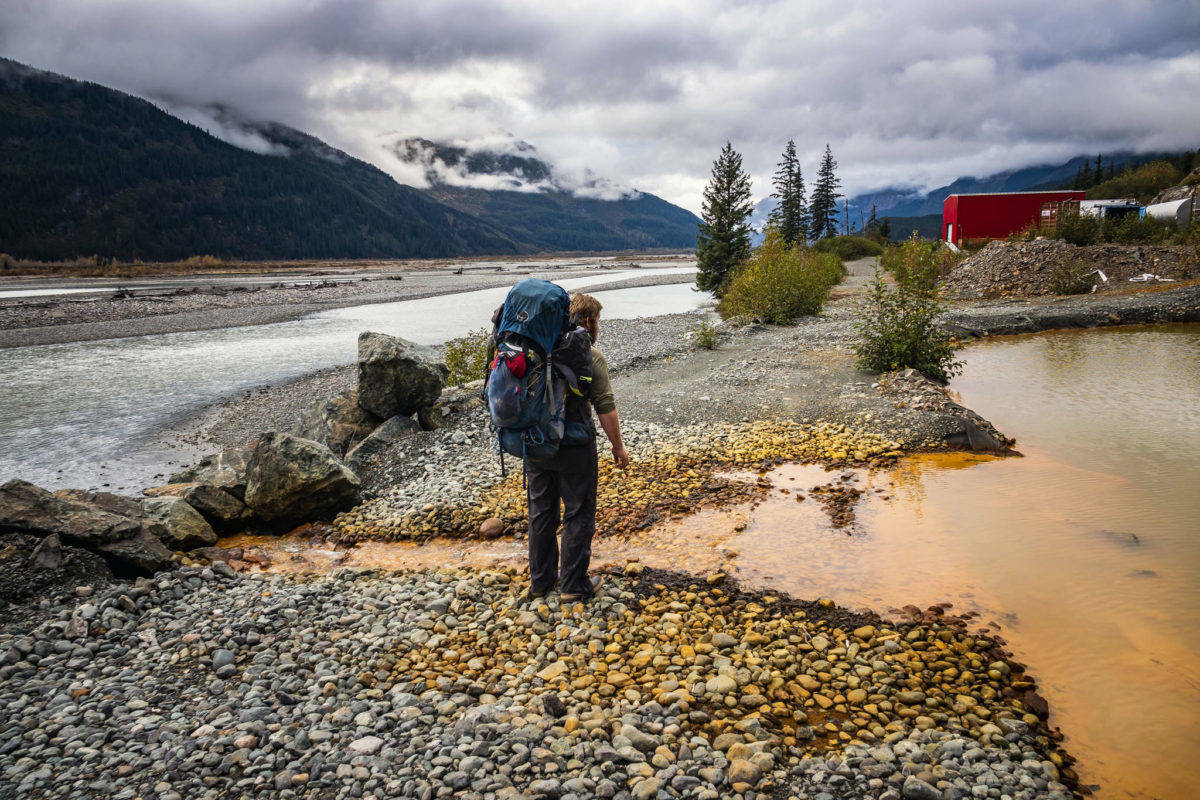Nine years ago on Aug. 4, the mine waste dam at Mount Polley mine in British Columbia’s Fraser River watershed failed, releasing 6.6 billion gallons of wastewater into a once-famed sockeye salmon nursery just as the salmon were returning.
It scared me.
Nine years later, Fraser River sockeye runs have tanked. The mine has re-opened and has been allowed for years now to spew its wastewater directly into one of the Fraser River’s key sockeye salmon nurseries, Quesnel Lake. And British Columbia corporations have doubled down on digging up and laying claim to wild salmon habitat sometimes literally inches from Alaska.
As a fourth-generation commercial salmon troller from Juneau, wild salmon have been a part of my life ever since I can remember. As kids, my children swung on the back deck of my boat as I fished. Each year, I take young people out on the water as deckhands to introduce them to the hard work, the long days, and the privilege that is commercial fishing for wild salmon.
This spring and summer were different: My fellow trollers and I were fighting a misguided lawsuit from the Washington-based Wild Fish Conservancy, which attempted to keep us from fishing in order to “save” the Southern Resident Killer Whale populations hundreds of miles away in the Salish Sea. A judge’s last-minute decision kept us fishing this summer. There’s a lot to say about this lawsuit, but I’ll focus on one: One of the many reasons this lawsuit, an abuse of the Endangered Species Act, was misguided was because the Wild Fish Conservancy chose to attack fishing families who are dedicated to fighting actual threats to wild salmon, and in turn wild killer whale populations — habitat degradation and contamination, which is happening on the great wild salmon rivers of Southeast Alaska.
As a high schooler more than 40 years ago, I traveled up the Taku River to the British Columbia’s abandoned Tulsequah Chief mine. My friends and I saw equipment rusting away in the open. Trucks. Fuel containers. Industrial litter. Drainage oozed out of overfilled sludge ponds and mine entrances, seeping into the Tulsequah River, which flows to the Taku. All around this contaminated site was one of the most beautiful places, and wild salmon nurseries, I’ve ever visited in my life.
The Tulsequah Chief mine is an eyesore, but not an exception: it’s a harbinger of what is to come. Just over the political border, B.C. is doubling down on the development of acid-generating megamines and waste dams. They are planning to industrialize wild salmon habitat on an enormous scale and are shutting Alaskans out of the conversation.
My grandfather traveled to Alaska in 1898, during the Klondike Gold Rush. He and a couple other guys built a boat in Missouri, put it on a train, and sailed up here from Seattle. His friends went to work at the AJ mine in Juneau. Mining is part of my family history, and I’m not anti-mining: I’m pro responsible mining.
Wild salmon aren’t gold. They’re better than gold. They feed us, they create jobs, and, year after year, as long as we don’t mess it up, they come back.
What’s going on just over the border in British Columbia 125 years later is a whole other level. Dozens of planned gold mines just over the border from Alaska will require or already employ massive mine waste dams, sometimes the same design that failed at Mount Polley. They require treatment forever in order to prevent contamination of our wild salmon ecosystems. Some would be some of the largest mines in North America. Downstream fishermen, businesses, community members, and Tribes are being ignored or given a bureaucratic runaround by B.C. when we express concerns, which is why we are urging our elected officials, state and federal, to demand a ban on B.C.’s failure-prone mine waste dams and a temporary pause to new B.C. mining activity in transboundary watersheds until all of us who will be impacted, on both sides of the border, are at the table.
I can’t imagine a Mount Polley mine waste dam failure happening in the Taku, Stikine or Unuk. Wild salmon aren’t gold. They’re better than gold. They feed us, they create jobs, and, year after year, as long as we don’t mess it up, they come back.
• Joe Emerson is a fourth-generation Juneau-based commercial salmon troller. This article originally appeared online at alaskabeacon.com. Alaska Beacon, an affiliate of States Newsroom, is an independent, nonpartisan news organization focused on connecting Alaskans to their state government.

